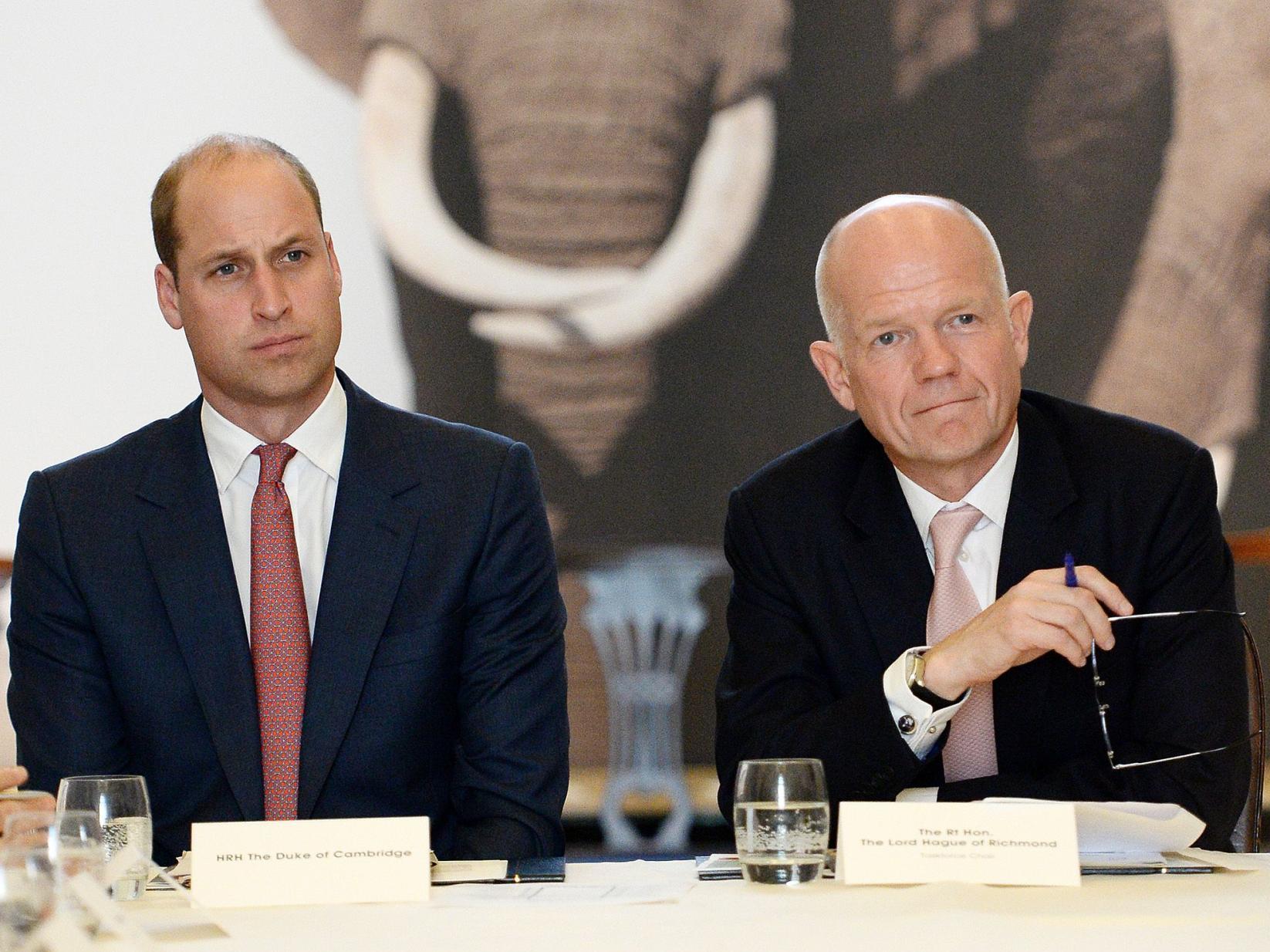‘We need real international peer pressure’: William Hague calls for UK and China to lead fight against the illegal wildlife trade
Former leader of the Conservative Party says the trade in wild species should be treated as a global security issue

William Hague has called for a “bold” approach from the British government to tackle the illegal wildlife trade in the wake of the coronavirus pandemic.
“What’s happening to the world now is the most devastating thing for decades and so we ought to be able to come up with an appropriate response to that and prevent it happening again,” Lord Hague said on Wednesday at a webinar hosted by the international conservation organisation Space For Giants.
Lord Hague is the current chair of the United for Wildlife Taskforce, a collaboration between seven conservation organisations and The Royal Foundation, led by the Duke and Duchess of Cambridge.
The former Conservative Party leader said the current UK government should capitalise on its role as host of the next UN Climate Change Conference and engage with China, since the UN Biodiversity Conference 2020 is taking place in Kunming. (Both events have been delayed due to the pandemic).
He said: “Together we could really propose something bold here. It ought to be a new convention, asking for endorsement of the United Nations, and for the nations of the world to sign up to it, forbidding the trading of wild animals for consumption.”
Lord Hague said that it was time for an “ambitious” international agreement that treated the trafficking of wild animals as a global security issue.
The illegal wildlife trade, with an estimated value of $213bn (£169bn) according to an Interpol and UN report, not only decimates biodiversity-rich ecosystems and props up criminal networks but threatens public health by risking the spread of infectious diseases like Covid-19.
There is currently no global agreement on combatting wildlife crime. Lord Hague said that a “key ingredient” of any new deal would be a new UN body to investigate, research and monitor breaches of the commitments that nations make.
He added: “We have [international bodies] for all sorts of reasons – to investigate breaches of agreements on chemical weapons or on the use of atomic facilities. Given that what we’re experiencing now is such a catastrophe for the world, this subject ought to have such a body.
“If I was the Chinese government, I would be putting it forward. If I was the American government, I’d think, ‘Why don’t I propose it before the Chinese do?’ There ought to be some real international peer pressure to get this going and I think the UK is in a good position to start that ball rolling.”
In line with the healthcare maxim of “prevention is better than cure”, the world should focus on preventing future pandemics rather than managing them, he said.
Lord Hague was part of a panel exploring how to prevent the supply of wild animals and their parts to markets, organised by Space For Giants (SFG) and The Arts Club.
The guests included John Scanlon, former secretary-general of CITES, and Shamini Jayanathan, a barrister who has pioneered criminal justice solutions to illegal wildlife trafficking. It was moderated by SFG founder Dr Max Graham.
Mr Scanlon suggested amending Cites (the Convention on International Trade in Endangered Species) which currently focuses on regulating the cross-border, legal trade in a limited number of wild animals and plants in order to protect the species’ survival.
He called for the convention to be expanded to “oblige the management authority never to authorise a trade under Cites unless they have first determined the public and animal health risk”.
The illegal trade in wild animals could be brought into the purview of the United Nations Convention against Transnational Organised Crime (UNTOC) which combats human trafficking and firearms, Mr Scanlon said.
Ms Jayanathan explained that “countries that are rich in the biodiversity that we want to protect, by and large are weak in the rule of law in relation to all types of criminality”.
She urged the need to tread carefully in creating international agreements and called for bolstering practical measures to help domestic investigators, prosecutors and judiciaries implement the law.
She pointed out that in countries such as Kenya and Somalia, prosecutors are often faced with overwhelming caseloads and barriers such as limited Internet and an inadequate law library.
“It’s hard to ask local prosecutors to commit to prioritise pangolins and parrots over gender-based violence and pilfering of public funds,” she said.
The barrister suggested that international aid could be funnelled into improving the overall legal systems in countries where wildlife crime is rife. “Renewed international commitment can help but it needs to be coupled with demanding that these countries are properly investing in criminal justice systems as a whole.”
Subscribe to Independent Premium to bookmark this article
Want to bookmark your favourite articles and stories to read or reference later? Start your Independent Premium subscription today.

Join our commenting forum
Join thought-provoking conversations, follow other Independent readers and see their replies